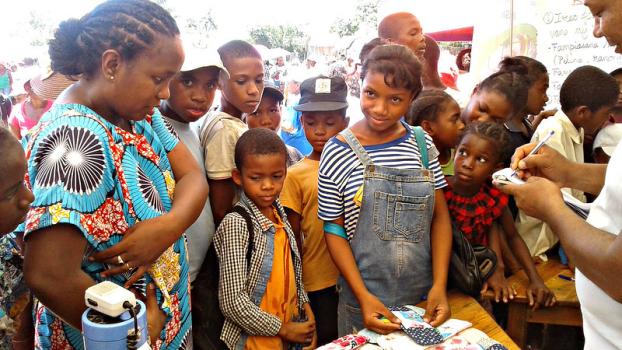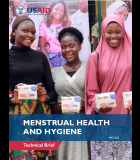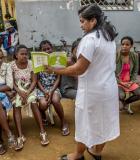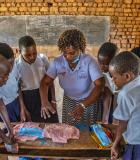Menstrual Hygiene Day 2020: It's Time for Action

Every May 28, nonprofits, government agencies, the private sector, the media, and individuals come together to celebrate Menstrual Hygiene Day (MH Day) and advocate for the importance of good menstrual hygiene management (MHM). This year, MH Day recognizes that periods do not stop for pandemics and will continue to drive home the idea It's Time for Action. This theme highlights the urgency for the collective work needed to both change the negative social norms surrounding menstruation and also catalyze progress toward empowering women and girls to unlock their educational and economic opportunities.
Over 800 million women and girls menstruate every day, yet across the globe they face barriers to properly managing their periods. The social stigmas and taboos surrounding menstruation often prevent women and girls from attending work and school. Even when they do attend while menstruating, the lack of access to menstrual hygiene products, lack of sanitation infrastructure such as private toilets and handwashing facilities, and lack of menstrual hygiene education can prevent women and girls from reaching their full potential in the classroom, in the workplace, and at home.
USAID's work in the menstrual hygiene field includes developing design standards for female-friendly facilities, creating educational resources, promoting the availability of MHM-–related supplies, and destigmatizing menstruation. The provision of adequate and safe sanitation can promote equity and opportunity, which, in turn, contributes to the erosion of long-standing discrimination and societal norms that reinforce traditional roles, prejudices, and expectations. USAID also works with host governments to draft national MHM strategies.
For more resources on this topic, visit the Menstrual Hygiene Management Day resource collection on Globalwaters.org





